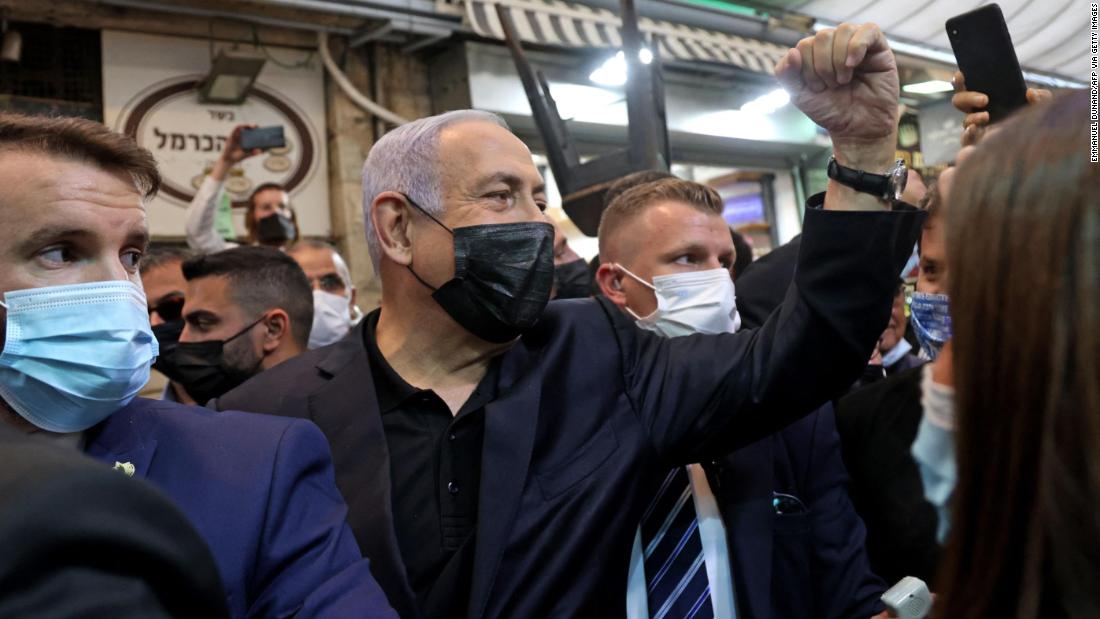On the coronavirus pandemic, Netanyahu, like many leaders, struggled to balance public health with economic imperatives, while making what looks like a winning bet on vaccine purchases, Israel’s position appears stronger than most in terms of their emergence from the pandemic.
This time, the prime minister faces a particularly wide range of opponents, and opinion polls suggest that up to thirteen parties could cross the electoral threshold and guarantee representation in the 120-seat Knesset.
Centrist Yair Lapid, who once served as Netanyahu’s finance minister and anchored TV news before entering politics with his Yesh Atid (There is a Future) party in 2012, is on track to finish in second place, according to with all the research.
Two other key figures in this election are former Defense Minister Naftali Bennett, leader of the Yamina party, and Gideon Saar, leader of New Hope. Both are right-wing, seen as ideologically in tune with Netanyahu, but with a clear distinction between them. Saar, like Lapid, ruled out joining the Likud leader in any government after the election; Bennett was more cautious about what he would do, making him the potential king-maker in this election.
Israeli governments are always coalition arrangements, so smaller parties can have a decisive impact. Netanyahu will seek strong performances from the two main religious parties representing ultra-Orthodox communities – both say they will remain Likud’s allies after the election. In addition, the Israeli leader can feel confident that he has the support of the far-right Religious Zionism party. Research suggests that this group – which includes followers of the extremist Rabbi Meir Kahane, whose own political party was banned from the Knesset in the 1980s for being racist – is on its way to crossing the electoral threshold and winning four or even five seats.
“I never believed in Netanyahu, but I was willing to cooperate with him for the good of the country,” said Gantz after the government collapsed, adding later: “I shook hands with a serial promise breaker. I shook hands with him because the State of Israel was at war [with the coronavirus], and I am, above all, a soldier. I was wrong.”
One of the most striking aspects of this election campaign was Netanyahu’s attempts to gain support among Israeli Arab voters. In previous campaigns, he was accused of trying to suppress the vote; on election day in 2015, he even made a video stating that Arab voters were “moving to the polling stations en masse” – to motivate his Likud base to go out and vote. This time, in contrast, he produced campaign material featuring voters declaring in Arabic his support for “Abu Yair”, Yair’s father, hailing his achievements in the coronavirus vaccine. Privately, Arab party lawmakers admit that the campaign was effective.
The Joint List, an alliance of three mainly Arab parties committed to the overthrow of Netanyahu, appears destined to win the eight-seat region. The United Arab List, which separated from the Joint List in February, hopes to cross the electoral threshold with four seats. Its leader Mansour Abbas took an independent stance on this campaign, suggesting that he could offer the prime minister some form of support in coalition negotiations in exchange for financial commitments that would benefit the country’s 20% Arab minority.
Voting closes at 10 pm (4 pm ET). TV networks publish projected results based on opinion polls almost immediately, but it will likely be several days before the final results are known. Given that several parties have been voting close to the electoral threshold, it is quite possible that some of them will not be able to guarantee seats after all votes are counted, which in turn could have a major impact on the existing possibilities for the main parties looking to build a coalition of at least 61 seats.
And if the election does not result in a viable coalition, Israelis may return to the polls later in the year.
